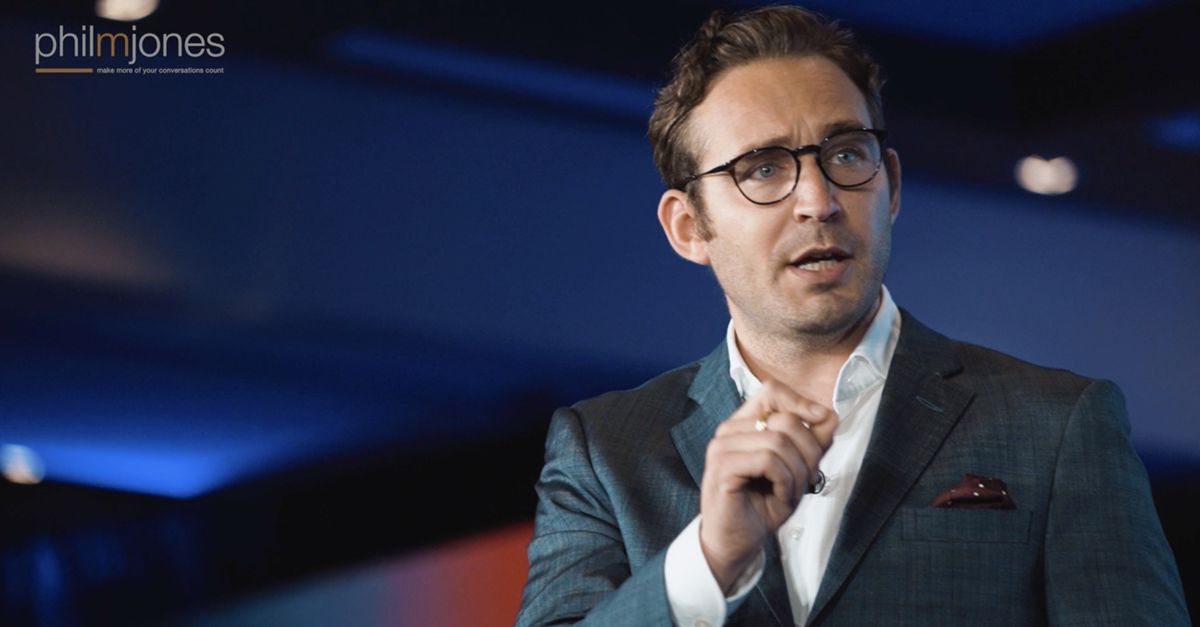In person events provide one of the most in-depth learning experiences that is almost impossible to recreate in a virtual setting.
Last month, Phil M Jones did an event for American Equity in Las Vegas. When we chatted after the event, he said that he "felt safer at every part of that event than he does getting supplies from the grocery store." We asked him why and thought that his answers might be of interest to all of you who are seriously re-looking at your in-person events.
WE ASKED THE CLIENT: How much extra effort/burden did all of your protocols put on your team/company?
And, we are very grateful that his client gave us his perspective as well which you'll also find below.
PS: a big shout-out to Speakers Spotlight for connecting Phil with their American Equity client!
KAREN: Was there anything your client at American Equity did to make you feel safe prior to the event?
PHIL: Prior to the event there was a level of diligence that really helped to give confidence that 2 things were being taken very seriously. One was the well-being of all who participated in the event itself and second was an unrelenting passion for creating a fabulous experience for attendees.
Making the effort to ensure all attendees could show a recent negative test was a huge reassurance in their dedication to safety, especially when backed up with not only their persistence in securing and documenting my own personal result, but also their numerous steps at the event itself.
KAREN: What happened when you arrived in Vegas? Was there something special that was done for you at the airport? with the car service? upon your arrival at The Cosmopolitan?
PHIL: As a solo traveller, I feel that typically I can navigate my own logistics to avoid too many unknowns, but the airport meet and greet removed an additional layer of human interaction that was very welcome.
KAREN: What type of protocols were implemented on-site for the attendees and yourself that made you feel safe and still like a human being?
PHIL: I think this is where things really shined. They created a dedicated space for their event and attendees. The main event hall, the lobby areas plus all the food and entertainment amenities were all private to event attendees only, were incredibly spacious and even the fact that a dedicated member of staff was serving coffees from the urn, plus dedicated staff were creating custom food plates, made a welcome and comforting change to the free-for-all of many past events.
When these steps were added to a well communicated and respected, colored lanyard, social distancing guideline, plus ample space for all attendees having their own dedicated desk space in the meeting room - there seemed to be ample space and respect to converse and communicate freely while being at a comfortable social distance.
Finally, there was an unwritten respect and grace that all presenters and on site staff had for all protocols - nobody was cracking jokes at the seriousness being taken - regular moments were taken to re-communicate the protocols to all attendees - and it was mostly normalized without judgement. This resulted in people seemingly accepting the rules as opposed to debating their place - this made for far more meaningful conversations.
KAREN: How valuable do you think this in-person event was for re-connecting and learning for the attendees?
PHIL: In-person events provide one of the most in-depth learning experiences that is almost impossible to recreate in a virtual setting. I am talking about peer to peer commentary, reflection, reinvention and creation. It is essential to spend time learning from the real experiences of others and challenge everyone’s thoughts by presenting them with new areas of focus.
A great speaker does the important job of sharing new ideas and then in turn starting new conversations - in-person events then develop those conversations, turning them into shared experience, collaborative thinking and then help create lasting change.
So many people are lacking inspiration, direction and purpose right now as well as a shared frustration. An in-person event can help deliver solutions to all those problems, with attendees leaving empowered, inspired, belonging and re-energized.
KAREN: Do you have any advice for anyone who is re-thinking their in-person event?
PHIL: The start of EVERY event is the audience and the responsibility for all of us in the industry is to deliver experiences that change their world. If you can still work within some very real constraints to create a life changing experience then fighting to achieve that, as opposed to picking the option of re-scheduling or streaming recorded content online, could well be worth the extra effort and energy.
Not ALL events should run - but we all know that GREAT events are one of the most powerful tools we all hold a part in to change our world.
WE ASKED THE CLIENT: How much extra effort/burden did all of your protocols put on your team/company?
JOHN LICKTEIG, AMERICAN EQUITY: I will say there was a lot of extra effort that went forth in planning this event and was completely different from events I’ve done in the past. However we wanted to make sure all of our attendees felt safe in the environment they were in and I think my company delivered that flawlessly. We outlined and communicated all of the protocols that were set in place in order to host this live event.




